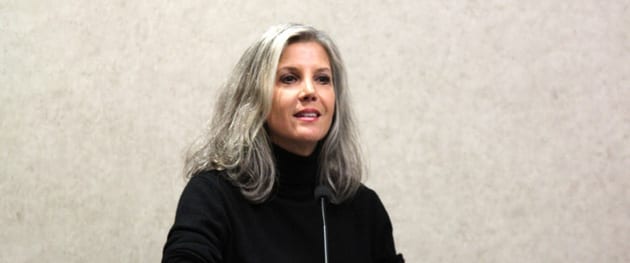1
-
Basic Police Training: Class 2025-B
-
DEADLINE: Single parent scholarship applications for spring
-
Distance Education Scholarship Deadline
-
Labor Day - Campus Closed
-
Arkansas Single Parent Scholarship Deadline-Fall
• • • • •
|
2
-
Basic Police Training: Class 2025-B
•
|
3
-
Basic Police Training: Class 2025-B
•
|
4
-
Basic Police Training: Class 2025-B
-
Board of Trustees Meeting (Paragould)
-
Beginner Sewing Class: Make Your Own Apron
5:30 pm - 8:30 pm
Beginner Sewing Class: Make Your Own Apron
Instructed by: Ashlynn from Three Thread
Join us for a fun and practical beginner sewing class where you’ll learn how to make your very own apron! This class is perfect for those new to sewing or looking for a simple and rewarding project. Everything included. Sewing Machines are provided.
Skill Level: Beginner to Intermediate
What You'll Learn:
- How to select and cut fabric for your apron (Color may vary from picture)
- Basic sewing machine techniques (perfect for beginners)
- Sewing Machine is provided
- Step-by-step instructions on assembling your apron, including sewing seams and attaching straps
- How to add personalized touches, such as pockets, trims, or decorative stitches
Class Details:
-
- Thursday, September 4, 2025 5:30-8:30 pm
- BRTC Paragould Campus Room 107
- Cost $55
- Deadline to Register: August 29, 2025
For more information, contact BRTC Community Education at 870-913-9611 or community@blackrivertech.edu
Register
• • •
|
5
-
Basic Police Training: Class 2025-B
•
|
6
|
7
|
8
-
Basic Police Training: Class 2025-B
-
A Journey of Essential Oils
6:00 pm - 7:30 pm
A Journey of Essential Oils
Black River Technical College, 1410 Highway 304 East, Pocahontas, AR 72455, USA
A Journey with Essential Oils - Pocahontas
Instructed by Lotus & Crow
Join us on a transformative journey to discover the power and beauty of essential oils. In this hands-on class, you’ll explore how nature’s purest plant extracts can support your wellness, elevate your mood, and promote a healthy lifestyle. From the basics of blending to understanding the therapeutic properties of each oil, you'll learn how to harness the natural healing power of essential oils for emotional balance, relaxation, and physical wellness.
Whether you’re new to aromatherapy or looking to deepen your knowledge, this class will give you the tools to integrate essential oils into your daily routine. You'll leave feeling empowered to use these nature’s gifts to create personalized remedies for yourself and others.
- The fundamental properties of essential oils and their uses
- How to safely and effectively blend oils for different needs
- Tips for incorporating essential oils into your daily life
- Each student will be making their own Foaming Hand Soap to take with them
- Class includes Lecture, workbook, hands-on creation, and kit included
Class Details:
- Monday, September 8, 2025 6:00-7:30 pm
- BRTC Pocahontas Room 113
- Cost $55
- Deadline to Register: Thursday, September 4, 2025
For more information, contact BRTC Community Education at 870-913-9611 or community@blackrivertech.edu
Register
• •
|
9
-
Basic Police Training: Class 2025-B
-
September Success Series: Business Etiquette
-
September Success Series: Business Etiquette
• • •
|
10
-
Basic Police Training: Class 2025-B
-
September Success Series: Professional Values
-
September Success Series: Professional Values
• • •
|
11
-
Basic Police Training: Class 2025-B
-
September Success Series: Communication Skills
-
September Success Series: Communication Skills
• • •
|
12
-
Basic Police Training: Class 2025-B
-
September Success Series: Modeling Leadership & Inspiring Collaboration
-
September Success Series: Modeling Leadership & Inspiring Collaboration
• • •
|
13
|
14
|
15
-
Basic Police Training: Class 2025-B
-
Arkansas State-Jonesboro Transfer Recruiter (Pocahontas)
• •
|
16
-
Basic Police Training: Class 2025-B
-
Arkansas State-Jonesboro Transfer Recruiter (Pocahontas)
-
September Success Series: Mentoring & Internships
-
September Success Series: Mentoring & Internships
-
Kids Acrylic Painting Summer Ghost
4:30 pm - 6:00 pm
Kids Acrylic Painting Summer Ghost
Black River Technical College, Paragould, 1 Black River Dr, Paragould, AR 72450, USA
Instructed by Jerri Ann
Join us for a spooky-sweet summer painting adventure! In this acrylic painting class, kids will create their very own cheerful ghost friend with a summer twist. Artists can choose between two fun designs: a ghost floating in the ocean or a ghost enjoying the beach with not one—but two—ice cream cones! Step-by-step instruction makes this class perfect for beginners, and each child will take home a colorful masterpiece to show off.
Class Details:
- September 16, 2025
- 4:30-6:00 pm
- BRTC Paragould Campus
- Recommended for ages 6 and up
- $20
- Spaces are limited—register early to save your spot!
For more information, contact BRTC Community Education at 870 913-9611 or community@blackrivertech.edu.
Register
• • • • •
|
17
-
Basic Police Training: Class 2025-B
-
UCA Transfer Recruiter (Pocahontas)
-
Arkansas State-Jonesboro Transfer Recruiter (Paragould)
-
September Success Series: Resume, Cover Letter & Digital Portfolios
-
September Success Series: Resume, Cover Letter & Digital Portfolio
• • • • •
|
18
-
Basic Police Training: Class 2025-B
-
Arkansas State-Jonesboro Transfer Recruiter (Paragould)
-
September Success Series: Interview Preparation
-
September Success Series: Interview Preparation
-
Lymph Flow: Boost Your Body's Natural Healing
6:00 pm - 7:30 pm
Lymph Flow: Boost Your Body's Natural Healing
Black River Technical College, Paragould, 1 Black River Dr, Paragould, AR 72450, USA
Lymph Flow: Boost Your Body's Natural Healing-Paragould
Instructed by Lotus & Crow
In this class, we’ll explore techniques to help stimulate and support the flow of lymphatic fluid, improving circulation and boosting overall wellness. Through gentle movement, breathing exercises, and simple massage techniques, you’ll learn how to encourage lymphatic drainage, reduce swelling, and enhance your body’s natural detoxification process. Whether you’re looking to improve immunity, reduce stress, or simply feel more energized, this class provides the tools to help your body function at its best.
- No experience is required, just a desire to nurture your body and mind
- Workbook, lecture, and a group exercise
- Kit included to take home and to support your lymphatic health care
- Perfect for anyone seeking to improve circulation, increase energy, or relieve stress, this class provides a peaceful and nurturing approach to wellness
Class Details:
- Thursday, September 18, 2025
- 5:30-7:00 pm
- Cost: $55
- BRTC Paragould Room 107
- Deadline to Register: Monday, September 15, 2025
For more information, contact BRTC Community Education at 870-913-9611 or community@blackrivertech.edu.
Register
• • • • •
|
19
-
Basic Police Training: Class 2025-B
•
|
20
|
21
|
22
-
Basic Police Training: Class 2025-B
•
|
23
-
Basic Police Training: Class 2025-B
-
Honey the Highlander Acrylic Painting Class- Paragould
6:00 pm - 8:00 pm
Honey the Highlander Acrylic Painting Class- Paragould
1 Black River Dr. Paragould AR
Instructed by: Jerri Ann
Say hello to Honey the Highlander—our charming, sunflower-crowned cow who’s ready to bring a smile to your canvas! In this exciting Class, you’ll be guided step by step to create your very own masterpiece featuring Honey’s adorable, fluffy features and her cheerful sunflower crown.
You’ll learn how to:
- How to blend and layer paint to create depth and texture in Honey’s fur
- Techniques for painting expressive eyes and facial features
- Tips for painting bright, realistic sunflowers
- How to add finishing touches that make your artwork pop
No experience needed—just bring your creativity and we’ll provide the rest! Whether you’re looking for a fun night out, a chance to relax, or a new piece of art to brighten your home, this class is the perfect pick.
Class Details:
- Tuesday, September 23, 2025
- 6:00-8:00 pm
- Cost: $40
- BRTC Paragould Campus
- Deadline to Register: Thursday, September 18, 2025
For more information, contact BRTC Community Education at 870-913-9611 or community@blackrivertech.edu.
Register
• •
|
24
-
Basic Police Training: Class 2025-B
•
|
25
-
Basic Police Training: Class 2025-B
-
September Success Series: Resilience & Goal Setting
-
September Success Series: Resilience & Goal Setting
• • •
|
26
-
Basic Police Training: Class 2025-B
-
September Success Series: Growth & Gratitude
-
September Success Series: Growth & Gratitude
• • •
|
27
|
28
|
29
-
Basic Police Training: Class 2025-B
-
Sourdough Bread Baking Class
6:00 pm - 8:00 pm
Sourdough Bread Baking Class
The Main Dish, 101 S Pruett St B, Paragould, AR 72450, USA
Sourdough Bread Baking Class - Paragould
Instructed by: Amanda Gothard
Discover the art of sourdough bread baking in this hands-on class designed for beginners and baking enthusiasts alike! Learn the time-honored techniques of creating, maintaining, and using a sourdough starter to bake delicious, crusty, and flavorful bread from scratch.
What You'll Learn:
How to create and care for a sourdough starter
The science behind fermentation and natural leavening
Techniques for mixing, kneading, and shaping dough
Proofing, scoring, and baking for the perfect crust and crumb
Troubleshooting tips for common sourdough challenges
What's Included:
Step-by-step guidance from an experienced instructor
Take home a Starter and a Prepped Loaf of Bread
Recipes and instructions for future baking
Freshly baked sourdough to enjoy in class!
Whether you’re a first-time baker or looking to refine your skills, this class will give you the confidence to bake delicious sourdough bread in your own kitchen. Join us for a fun and flavorful experience!
Class Details:
Monday, September 29th, 2025
6:00-8:00 p.m.
101 S. Pruett St., Paragould (The Main Dish Kitchen)
Cost: $55
Deadline to Register: Thursday, September 25th, 2025
For more information, contact BRTC Community Education at 870-913-9611 or community@blackrivertech.edu
Register: https://blackrivertech.edu/sourdough-bread-baking-class-3/
• •
|
30
-
Basic Police Training: Class 2025-B
-
Charcuterie 101: From Simple to Stunning - Pocahontas
6:00 pm - 8:00 pm
Charcuterie 101: From Simple to Stunning - Pocahontas
Black River Technical College, 1410 Highway 304 East, Pocahontas, AR 72455, USA
Instructed by: Boards & Bites
Unlock the art of crafting the perfect charcuterie board in this hands-on, flavor-packed class! Whether you're hosting a casual gathering or planning an elegant spread, this class will teach you how to create visually stunning and delicious boards that will impress your guests.
What You'll Learn:
- The basics of charcuterie: understanding different types of meats, cheeses, and accompaniments.
- How to balance flavors and textures to create a harmonious board.
- Creative and unique ways to present your charcuterie board, from rustic to modern styles.
- How to make the most of seasonal ingredients and local products.
- Time-saving tricks for putting together a quick yet elegant board.
What's Included:
- A selection of meats, cheeses, fruits, nuts, and spreads
- Charcuterie board with a cheese knife and fork to create on
- Tasting notes and pairing suggestions
By the end of the session, you’ll have the skills and confidence to assemble a charcuterie masterpiece that looks as great as it tastes! You'll leave with a beautifully crafted board to enjoy and impress, along with recipes and a list of recommended suppliers to keep the creativity flowing at home.
Class Details:
- Tuesday, September 30, 2025
- 6:00-8:00 p.m.
- BRTC Pocahontas Room 113
- Cost: $50
- Deadline to Register: Tuesday, September 23, 2025
For more information, contact BRTC Community Education at 870-913-9611 or community@blackrivertech.edu
• •
|
|
|
|
|
|

